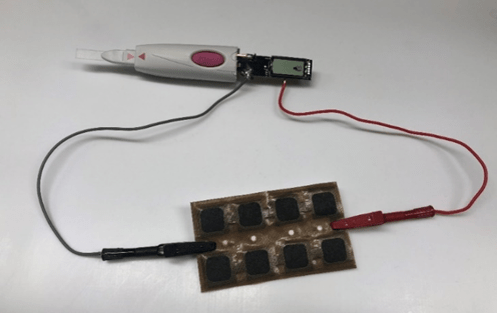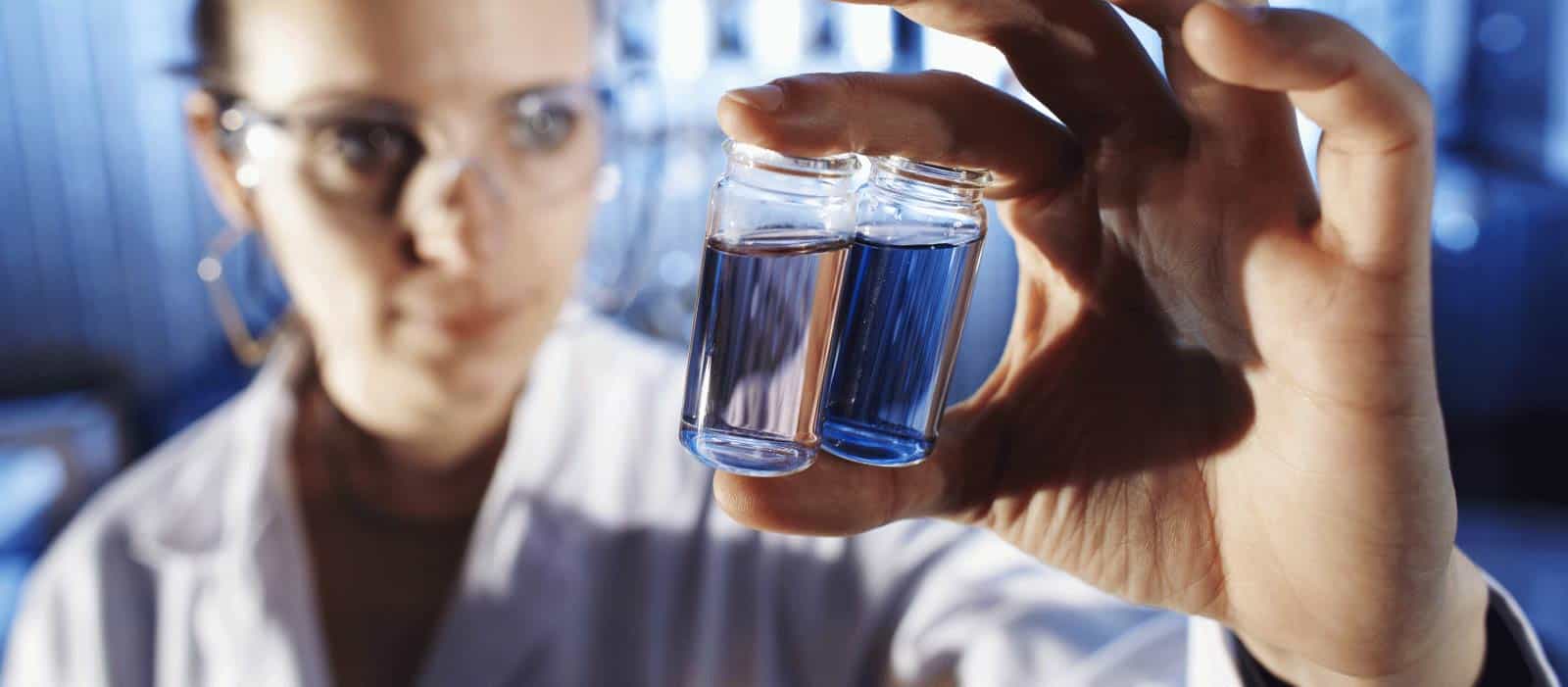ENZYMATIC GLUCOSE BIOFUEL CELLS
Enzymatic Glucose Biofuel cells in series to power disposable devices
Disposable electronic sensors like pregnancy or ovulation tests are being increasingly developed. However, most of them use toxic alkaline or lithium batteries for the power supply which, despite manufacturers’ indications, are rarely recycled.
To face these problems, our team has developed nontoxic enzymatic glucose biofuel cells capable of producing sufficient energy to run these disposable devices.
These biofuel cells transform chemical energy from the glucose into electrical energy by oxidation-reduction reactions catalyzed by biomolecules (enzymes).
Unlike conventional fuel cells which use noble metal catalysts, these biocatalysts have the advantage, in addition to their non-toxicity and their biodegradability, of providing energy conversion in complex environments and under mild conditions (room temperature and neutral pH).

The concept is based on the assembly of different sheet shaped components (catalytic electrodes, electron collectors, membranes) to form very thin, flexible, and adjustable biogenerators in terms of size, geometry and energy production (in parallel and in series connection of several biofuel cells).
Furthermore, the particular design only needs a few microliters of water to activate the energy production.
Project partners
DCM, 3SR

Target markets
Health
Manager of the project
Michael Holzinger
Researcher, DCM, BEA team
michael.holzinger@univ-grenoble-alpes.fr









